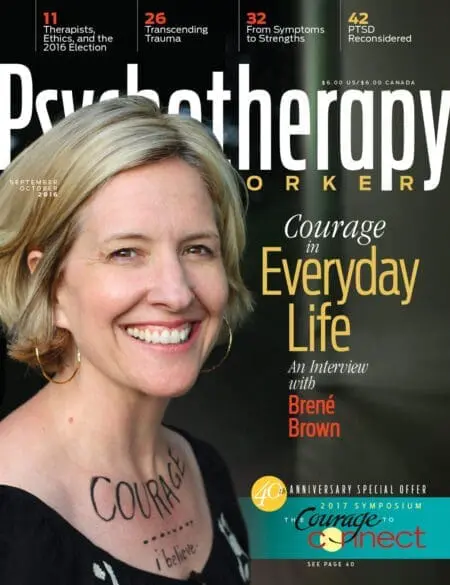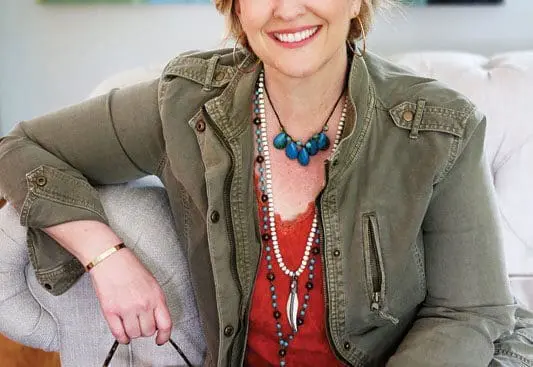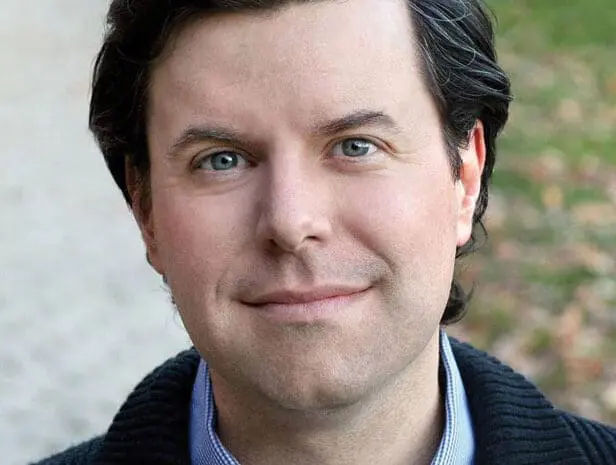Editor's Note
Rich SimonLiving Brave
From Vulnerability to DaringWith millions of people having seen her TED talks and read her books, researcher and bestselling author Brené Brown is a phenomenon. But aside from her... Read more
Transcending Trauma
Learning How to Guide Devastated Clients Toward GrowthIn the early days of the trauma field, clients were seen as one-dimensional bundles of dysfunction and pain, who needed to relive their trauma before progress... Read more
Hiding in Plain Sight
Clients' Symptoms Offer Clues to Their StrengthsAs therapists, we’re taught to be master detectives who methodically investigate our clients’ symptoms in search of a “culprit”—the source of their... Read more
Extra Feature
The Bonds of War
PTSD Reconsidered“In addition to all the destruction and loss of life, war also inspires ancient human virtues of courage, loyalty, and selflessness that can be utterly... Read more











